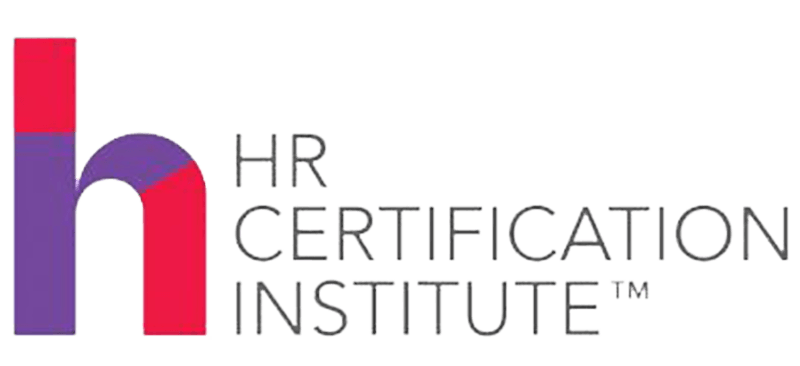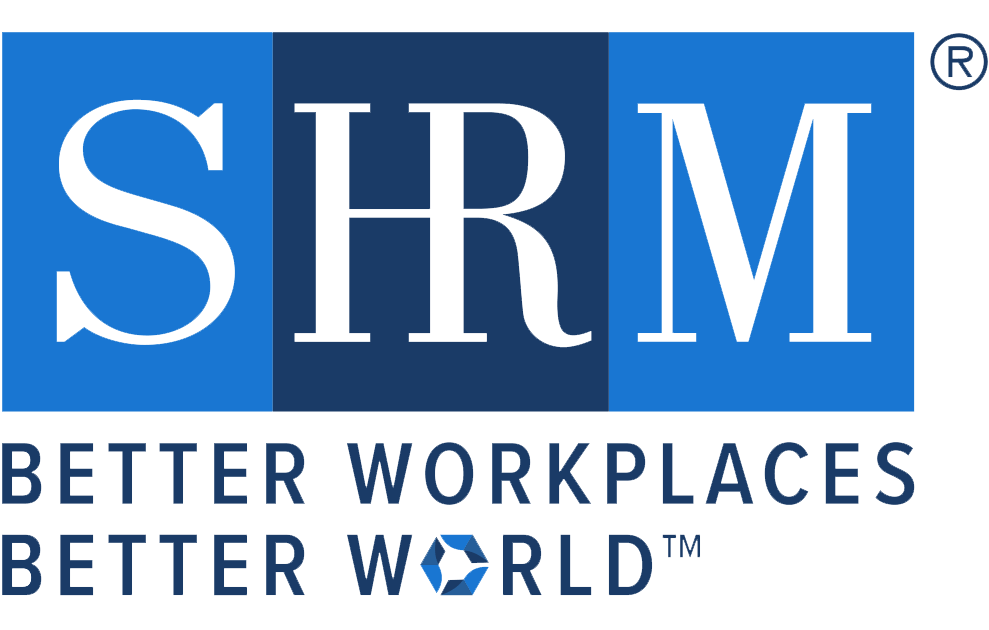Logic Test for Employers: Reasoning Test Before You Hire
By Victor Lipman
Use this logic test to hire smarter employees a lot faster.
The business world is a rational place. Your organization is guided by specific goals and metrics. Your managers translate them into performance standards, and your employees work diligently to meet them.
Well — at least that’s the theory.
It’s great when it works, but too often it doesn’t. As a longtime executive, I can attest that there are few things more frustrating than hiring someone you expect to be logical and rational, only to find out quickly they aren’t.
I well remember one new manager we hired. We’ll call him Anthony. We had high hopes, but he didn’t work out. As an employee from his department described it to me after about two weeks: “Oh, Anthony isn’t afraid of making decisions. In fact he’s making lots of decisions. But they’re all bad!”
Which is exactly why reasoning and logic tests for new hires are so valuable. Organizations want predictability. When it comes to hiring, they want to improve the odds that an employee they’re bringing on board is actually who they seem to be. In fact, Yale research shows a connection between companies hiring employees with strong cognitive ability and their success. (Big surprise, right?)
- Button above image: Test Your Job Candidates Now
- Suggested image: Candidate taking a logic test
- Button centered in image (Use This Logic Test)
- Text below image: Use the logic and reasoning test below to screen your candidates, or let The Hire Talent do it for you. We’ll screen for logic, critical thinking, problem solving, interpersonal, and other vital skills, so you can predict job performance before you even interview.
What Is a Logic Test?
A logic test is an effective reasoning skills test that measures a candidate’s critical thinking abilities. It provides questions for prospective new hires that assess their ability to recognize patterns and relationships. Essentially, it examines their capacity for clear logical thinking.
Why does a logic ability assessment matter to you as an HR specialist or hiring manager? Simple — it helps you make smart hiring choices. And who doesn’t want employees who make decisions as incisively as Google’s Sundar Pichai, rather than Elizabeth Holmes?
Sample Logic and Reasoning Test

Feel free to use the sample logic ability quiz questions and answers below by simply copying and pasting them. Or, use The Hire Talent’s prepackaged, easy-to-use online logic skills assessment. You’ll more effectively weed out less-than-perfect candidates early in your hiring process, and identify the ones with lightning-fast mental skills.
Use these logic test examples in your hiring efforts:
1. Of these five countries, which one is in a different group from the others?
- Germany
- Portugal
- Argentina
- Switzerland
- France
Answer: C. Argentina is in South America, while the other four countries are all in Europe. This logical reasoning test question tests whether candidates recognize the geographic pattern presented.
2. In what direction should you turn a screw when you want to loosen it?
- Always clockwise
- Sometimes clockwise – it depends whether it’s a metal screw or a wood screw.
- It depends how the threads are arranged.
- Always counterclockwise.
- It doesn’t really matter.
Answer: D. As the old saying goes, “Righty tighty, lefty loosey.” You turn a screw to the right, or clockwise, to tighten it, and to the left, or counterclockwise, to loosen it. Materials and threads don’t matter. This employment logic test question tests awareness of everyday mechanical logic.
3. What is the next number in the series: 1, 3, 6, 10, 15, 21….?
- 31
- 28
- 27
- 42
- 63
Answer: B. Each number in this series increases by 1 more than the difference between the prior 2 numbers in the series. In other words, 3 is 2 more than 1, 6 is 3 more than 2, 10 is 4 more than 6, 15 is 5 more than 10, and 21 is 6 more than 15. Thus, we need the number that will be 7 more than 21, meaning 28. This reasoning test question assesses a candidate’s ability to understand patterns of logical mathematical sequencing.
4. Which of the following is different from the others in this group?
- Mountain
- Creek
- River
- Pond
- Ocean
Answer: A. All of the answers in B to E are forms of water, while a mountain is a land mass. This logical test question tests a candidate’s ability to identify logical category patterns.
5. Bananas cost 59 cents per pound. Sue bought $3.96 worth of bananas. How many pounds of bananas did Sue buy?
- 0.14
- 0.15
- 6.7
- 6.8
- Who cares – bananas are too expensive.
Answer: C. Dividing the total cost of the bananas in cents by the price per pound in cents yields an answer of 6.7118, which rounds to 6.7 pounds. This employee logic test question tests a candidate's ability to think critically and perform basic mathematical processing.
6. Jane’s Sporting Goods store made $30,000 in revenue this month, a 50% increase over last month. What was her revenue last month?
- $15,000
- $60,000
- $20,000
- $22,500
- $150,000
Answer: C. Setting up the ratio $30,000/x = 1.5/1 is an easy way to find Jane’s prior-month revenue of $20,000. This reasoning test question assesses a candidate’s logical mathematical reasoning.
7. Choose the pair of words that are related like: PEACH : CHEAP
- Orange : Car
- Peach : Apple
- Ski : Mountain
- Dusty : Study
- Panda : China
Answer: D. “Peach” and “cheap” both consist of exactly the same letters, just arranged differently to form different words. “Dusty” and “study” are the two words among these choices that have this same relationship. While the other words may have certain relationships — for example, you can ski on a mountain, and pandas may live in China — these are not the same relationships as words with different meanings containing identical letters. This logic skills test question assesses a candidate’s ability to recognize creative patterns.
8. Of the five items, which belongs in another category from the other four?
- Puppy
- Colt
- Kitten
- Dog
- Cub
Answer: D. Puppies, colts, kittens and cubs are all definitely young animals, while the word “dog” does not suggest the animal is young. This pre-employment logic test question tests a candidate’s ability to identify logical relationships.
9. What is the next number in the series: 2, 4, 16, 256…..?
- 512
- 25,600
- 65,536
- 256,000
- None of these
Answer: C. Each number in this series is the previous number squared: 2 x 2 = 4, 4 x 4= 16, and 16 x 16 = 256. Thus, following this same pattern, 256 x 256 = 65,536. This reasoning test question checks a candidate’s ability to identify patterns in logical numerical relationships.
10. Which pair of words are related in the same way as: CAR : HIGHWAY?
- Bird : Water
- Jet : Hangar
- Dog : Cat
- Blue : Car
- Airplane : Sky
Answer: E. These sets of words are connected in that both involve methods of human locomotion: A car drives on a highway, and an airplane flies through the sky. While the other sets of words may have some kind of connection – for example, cars may be blue or jets can stay in hangars – the connection is not as clear and direct. This logic abilities test question tests a candidate's ability to reason logically and identify word relationships.
Pro Tip: Wondering how to test reasoning skills in an interview? You’re better off testing them before the interview, then skipping the interview for the candidates who fail.
How to Test Logic Skills

To administer a logic test like to new employees, follow best practices like using questions tested for efficacy and freedom from bias. Use a simple, secure interface that collects, stores, and scores answers in a safe way, and administer the test before you interview your candidates.
Testing employees for logic skills early saves time, since you’ll get a logic ranking of your job candidates before you start the interview process. Do it wrong, and you’ll come off more like Attila the Hun than Steve Jobs.
Several points to bear in mind:
- The questions and answers need to be statistically reliable, unbiased, and free of adverse impact. The Hire Talent’s logic assessment reduces bias in the hiring process, since it ranks your candidates before a human on your team can interact with them.
- If you don’t use an easy-to-use interface, your job candidates are more likely to shirk the test. They may decide that applying to open positions at your firm is too time-consuming, or even complain about you on social media. The Hire Talent’s simple interface makes taking the test a breeze.
- You’ll need to collect and store candidate responses securely to protect privacy.
- It’s vital to use a system that scores the answers fairly. Be warned that unless the job opening has been researched against the logic skills quiz you use, the results may not be useful. Fortunately, The Hire Talent’s logic test for employers is deeply researched against a wide pool of relevant positions.
How We Created Our Logic and Reasoning Test
If you use a simple, science-backed, online logic test, you’ll save money in your hiring process, respect your job candidates, and come off looking like Accenture or Amex to your applicants.
The Hire Talent’s logic abilities test questions were written based on research best practices, and then administered to large sample groups to verify that it accurately measures critical logic skills factors. It was then compared to other proven research tools by conducting thorough statistical analyses. Questions were adjusted based on these results, further analyzed to ensure freedom from bias, and finally the results were compared to actual job performance outcomes.
The result is a test that slashes bias by revealing your applicants’ logic skills before you even log on to a Zoom call.
Benefits of Online Logic Testing

Screening your job applicants with an online employee logic test can make your HR operation, in a word, smarter, and quickly put you in the Kris Dunn zone. Here are a few of the benefits:
- Screen out seriously unqualified candidates — an all-too-common HR nightmare.
- Identify high performers — assets you can’t afford to miss.
- Remove bias that easily creeps into the typical interviewing process.
- Predict job performance, since candidates with solid logic skills tend to function well on the job.
- Can be used for a wide range of jobs.
- Easy to administer and view results.
- Decrease time to hire by prioritizing the MVPs in your candidate pool.
- Increase retention by ensuring a better fit from day one.
- Reduce hiring costs by shortening your hiring process and placing less time on interviews and subjective evaluation.
Pro Tip: Logic skills aren’t the only skill set it’s important to test. Also consider a problem solving skills test, or a fast but comprehensive pre-employment assessment.
Why Are Logic Skills Important in the Workplace?
Logic skills are important because smart, rational, logical people are the lifeblood of successful businesses. Employees with strong logic skills can assess problems quickly, brainstorm possible solutions and evaluate them, and choose the one that’s the most achievable, realistic, and effective.
Monster’s The Future of Work survey for 2022 shows that problem solving (a key component of logic skills) is rated as one of the most important job skills by employers. Yet this same survey reveals that logical ability is also one of the most difficult traits to find in the labor market. That’s why a reasoning test can help you build a stronger workforce.
What Roles Need Logic Tests?

These days, it’s almost hard to imagine a position that doesn’t require some degree of logic and reasoning. But for some jobs these skills are more critical than others. You may really enjoy having a beer with your old pal Rusty after a basketball game, but you sure wouldn’t want him designing nuclear power plants or air traffic control systems.
Here are some common positions where logic ability testing is useful:
- Accountants
- Computer programmers
- Computer software engineers
- Doctors
- Mechanical engineers
- Teachers
- Project managers
- Investment analysts
- Financial analysts
- Auditors
- Controllers
- Managers
- Supervisors
- Lawyers
- Professors
- Judges
Summary
Businesses are by their nature logic-dependent, and only as good as their people.So — hiring the best is mission critical. The right logic ability assessment can help your hiring team quickly zero in on employees who value facts over feelings and make decisions based on a clear understanding of real-world situations. This can slash your time to hire. A reasoning test can also let you more cost-effectively hire employees who drive your company forward instead of holding it back.



